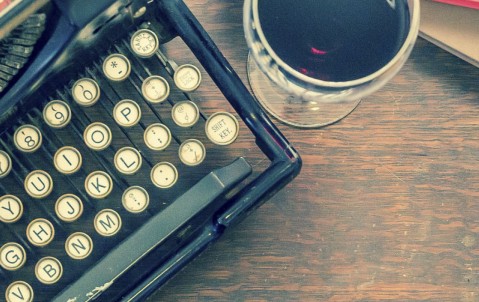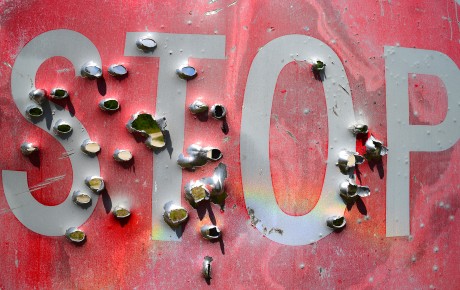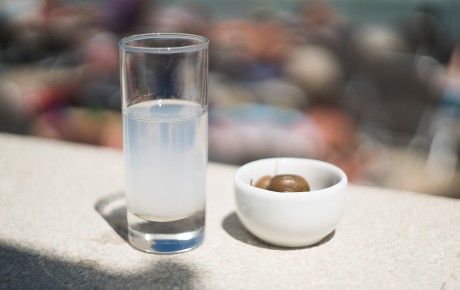
What’s flowery, bubbly, and leaves you with a headache?
No, not a bottle of wine bought from a 24-hour garage. It’s the modern wine writing boom, writes Bobby Read.
The wine boom has triggered an explosion in wine writing. The newsstands and internet are now heaving with magazines, websites and blogs that taste, test and rate wines from around the globe. But some of the descriptions used by today’s wine scribes are as likely to make us shake our heads in bewilderment as nod them in solemn assent. Can a wine really have the aroma of freshly-cut garden hose or a newly-opened can of tennis balls?
There’s always a temptation to get carried away, particularly if one is trying to capture the essence of a particularly rapturous vinous moment. But one sometimes wonders if some wine critics aren’t actually trying to make us laugh at times. After all, describing wine as having flavours of road tar, gym shoes or pencil shavings risks being mistaken for jokes lifted straight from Monty Python’s Australian Table Wine sketch.
Some of the descriptions offered by today’s star wine critics are so specific – and outlandish – that they don’t speak to other people.
Better in the good ol’ days?
Was it any different a few decades ago, before the current wine mania took hold? ''I was convinced 40 years ago – and the conviction remains to this day – that in wine tasting and wine talk there is an enormous amount of humbug.'' So wrote T.G. Shaw in his book Wine, the Vine and the Cellar – originally published in 1863.
Shaw conveys the impression that even back in the 19th century hyperbole was as much of an essential ingredient of the wine trade as it is today. “I am not afraid to say that there is a very ridiculous amount of fuss made and nonsense talked about wine,” he writes.
Back in Shaw’s day, wine merchants combined the roles of salesman, critic and expert, creating a fertile environment in which wine waffle could grow. Shaw solemnly concludes: “It would be much better for all wine merchants and customers if there were more candour and the avoidance of mystery on the part of the former; for the natural result is that there is generally not much more confidence placed in the statements of a wine, than of a horse dealer.”
The book contains Shaw’s tasting notes for the 1862 vintage of some of the very best Bordeaux wines:
- “Château Latour – Delicious bouquet – deficient in body.
- Château Margaux – Fine, but light.
- Château Lafitte – Flavour not quite equal to the Latour, but fine, full delicate body. The most valuable of the three.
- Léoville-Barton – Very excellent, but not equal to any of the first growths.
- Lascombe – Very good, will turn out well.”
Although admirably concise and undoubtedly knowledgeable I doubt that Shaw would have much of a future as a wine critic today. And I'd also have to question whether Shaw’s brief tasting notes are any more helpful to wine drinkers than some of the verbal pyrotechnics preferred by today’s critics. Less isn't always more.
A strong bouquet of hot air?
Flowery terms are hard to avoid because wine is so complex that its taste can be difficult to capture in words. Scientists have identified such a dizzying array of different acids, alcohols, organic compounds, sugars, vitamins and minerals that it’s no wonder that different people may pick up different flavours from the same bottle: my hint of damson could be your aroma of blackcurrants.
But, equally, wine isn’t a magic potion that can be truly enjoyed by only a small group of superhumans. Some of the descriptions offered by today’s star wine critics are so specific – and outlandish – that they don’t speak to other people. They don’t help to give me a true sense of what the wine really tastes like – I’m certainly not about to start sniffing old trainers to get an idea of what a wine’s bouquet may be. Also, they’re not appealing – I wouldn’t want to drink a wine described as “liquid Viagra” (is it bright blue with a chalky taste?), or worse still, beef blood.
Perhaps these modern tasting notes might be of more use describing how one feels after one has enjoyed a wine (rather too much)? I can recall some wines, unfortunately all too vividly, that have left more than a hint of animal fur on my tongue and my palate feeling like an old saddle when I have woken up the next morning.



